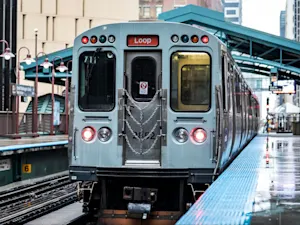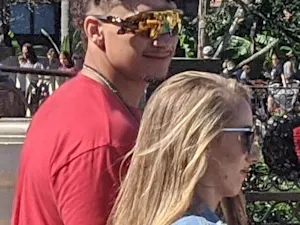
Murder at Yale: The Suzanne Jovin Mystery
It was a chilly December night in 1998 when Suzanne Jovin, a bright and promising senior at Yale University, was found brutally murdered, just minutes after she was last seen on campus. In the span of 33 minutes, Suzanne had vanished from a bustling university setting, and someone had stabbed her 17 times nearly two miles away. How did this young student turn up dead in an upscale New Haven, Connecticut, neighborhood — and who took her there? We still don't know. Let's dive into eight of the questions that have haunted investigators for more than 25 years.
1. How could Suzanne disappear, and her body be found so quickly?
One of the most perplexing aspects of Suzanne's murder is the tight timeline. At 9:22 p.m., a classmate spotted her walking near Phelps Gate, right on Yale's campus. By 9:55 p.m., her body was discovered on the corner of Edgehill Road and East Rock Road — almost two miles away.
The short timeframe suggests Suzanne didn't walk to this location. Investigators believe she must have been driven there, most likely by someone she trusted. Yet no one has ever come forward with details about what happened in those crucial 33 minutes. The mystery of how Suzanne ended up in that quiet residential area still eludes investigators.
2. Why did the investigation initially falter?
From the beginning, the investigation into Suzanne's murder faced challenges. Crucial evidence, such as DNA found under Suzanne's fingernails and a Fresca bottle with an unknown palm print, was mishandled or delayed in processing. Jurisdictional issues between Yale and New Haven police complicated the investigation, allowing valuable time to slip away.
3. Who borrowed Suzanne's GRE study materials?
In her final email, sent at 9:02 p.m. the night of her murder, Suzanne mentioned needing to retrieve GRE study materials from a friend. Strangely, this person has never been identified or come forward, leading some to wonder if that person could hold a critical clue — or worse, if they were involved.
Why would someone so involved with Suzanne's plans that evening remain silent? Investigators have long considered this individual a significant lead, but without knowing this person's identity, the case remains stalled. Was this person simply afraid to come forward, or was something more sinister at play?
4. Who was the 'running man' seen wearing a green jacket?
Just moments after Suzanne's body was found, a witness reported seeing a man sprinting away from the crime scene. He wore a loose-fitting green jacket and seemed out of place. Based on this sighting, police created a composite sketch years later, in 2008, hoping to identify him.
But this lead, like many others, has remained elusive. Police initially questioned the witness' credibility, and the man in the green jacket has never been found. Could he have been the killer, or was he just a random passerby on that fateful night?
5. Was Suzanne's thesis advisor involved?
One of the most controversial early theories focused on Suzanne's thesis advisor, James Van de Velde. As one of the last people known to have been in contact with her, Van de Velde quickly became a prime suspect. His academic stature made the accusations all the more shocking, casting a shadow over both his career and Yale's handling of the investigation.
Though no concrete evidence ever linked him to the crime, the damage had already been done. Van de Velde was placed on administrative leave, his reputation tarnished. Years later, he was officially cleared of any involvement, but the emotional and professional toll was significant.
In 2013, he reached a settlement with Yale and the city of New Haven over a defamation lawsuit, but the scars from those accusations lingered.
6. Could Suzanne's senior essay have played a role?
Another theory that has sparked curiosity is Suzanne's choice of senior thesis topic: Osama bin Laden. At the time in 1998, bin Laden was not yet a household name — remember, this was pre-9/11. Still, Suzanne had chosen to focus her essay on his growing influence and activities.
Some have speculated that her research into such a controversial figure may have placed her in danger or attracted unwanted attention. However, there's no concrete evidence to support this theory, and most investigators consider it unlikely. Still, the mere possibility that her academic work could have played a role adds yet another layer of intrigue to an already puzzling case.
7. What role did the mysterious van play?
Another tantalizing clue involves a tan or brown van seen parked near the location where Suzanne's body was found. Strangely, police didn't reveal information about this van until 2001 — two years after the murder.
Could this vehicle have been used to transport Suzanne from the Yale campus to the crime scene? Unfortunately, the delay in releasing this information has left the trail cold. No driver or vehicle matching the description has ever been located, leaving investigators — and the public — wondering about its significance.
8. Was a suspicious Yale student involved?
Documentary filmmaker Gilles Carter, who lives in the area where Suzanne was killed, and others, have pointed to a Yale School of Architecture graduate student as a possible suspect. The student reportedly had severe psychological issues, lived near Suzanne, had a likeness to the sketch of the "running man" and regularly wore a green jacket, and even confessed to being obsessed with her murder. He died in a 2012 car accident under mysterious circumstances, leaving behind unanswered questions.
Could this troubled student have been responsible for Suzanne's death, or was his fascination with the case merely a product of his unstable mind? Investigators haven't publicly pursued this lead, but it remains a topic of debate among those who follow the case.
Could this case still be solved?
The Suzanne Jovin case has fascinated the public for more than 25 years, and it continues to generate interest — but we are still left with more questions than answers. Authorities regularly renew their public appeals for information, with the most recent push in 2023. Investigators believe that even the smallest detail could unlock the truth behind what happened on that cold December night.
If you have any information about the murder of Suzanne Jovin, contact the tip line at 866-623-8058 or email jovin.case@ct.gov. After more than two decades, it's time to bring justice for Suzanne.
References: Killing of Yale student Suzanne Jovin continues to haunt loved ones and investigators 25 years later | Ivy League Cold Case: A new look at the 1998 killing of Yale student Suzanne Jovin | Investigators ask for public's help in solving 25-year-old homicide cold case in New Haven | Fifteen years later, Jovin's killer still unknown | Jovin murder investigation takes new twist | Cold Case of the Week: The 1998 Murder of Yale Student Suzanne Jovin | Jovin murder mystery continues 20 years later























